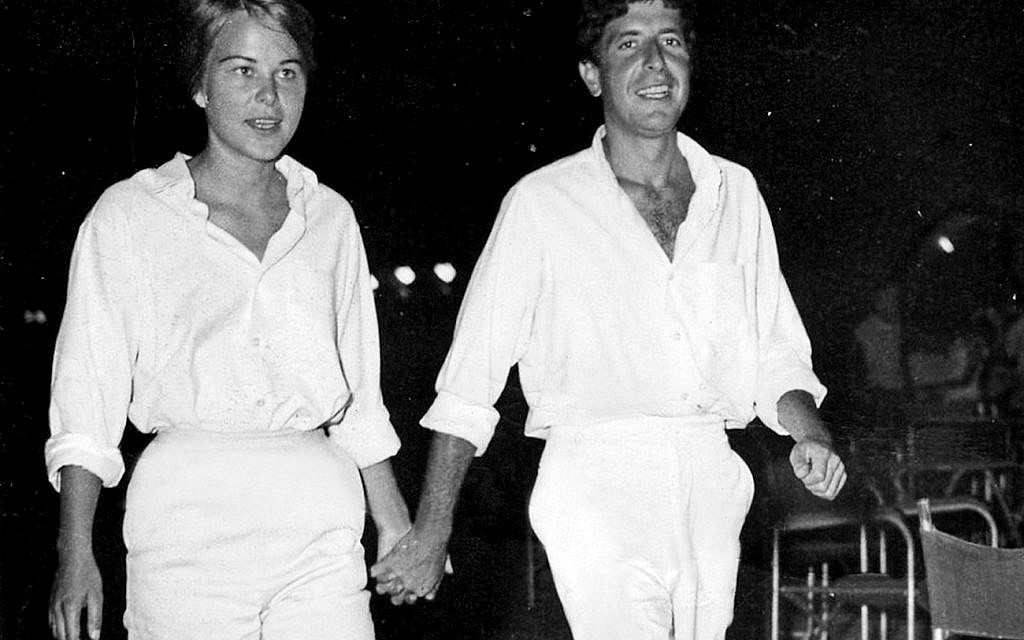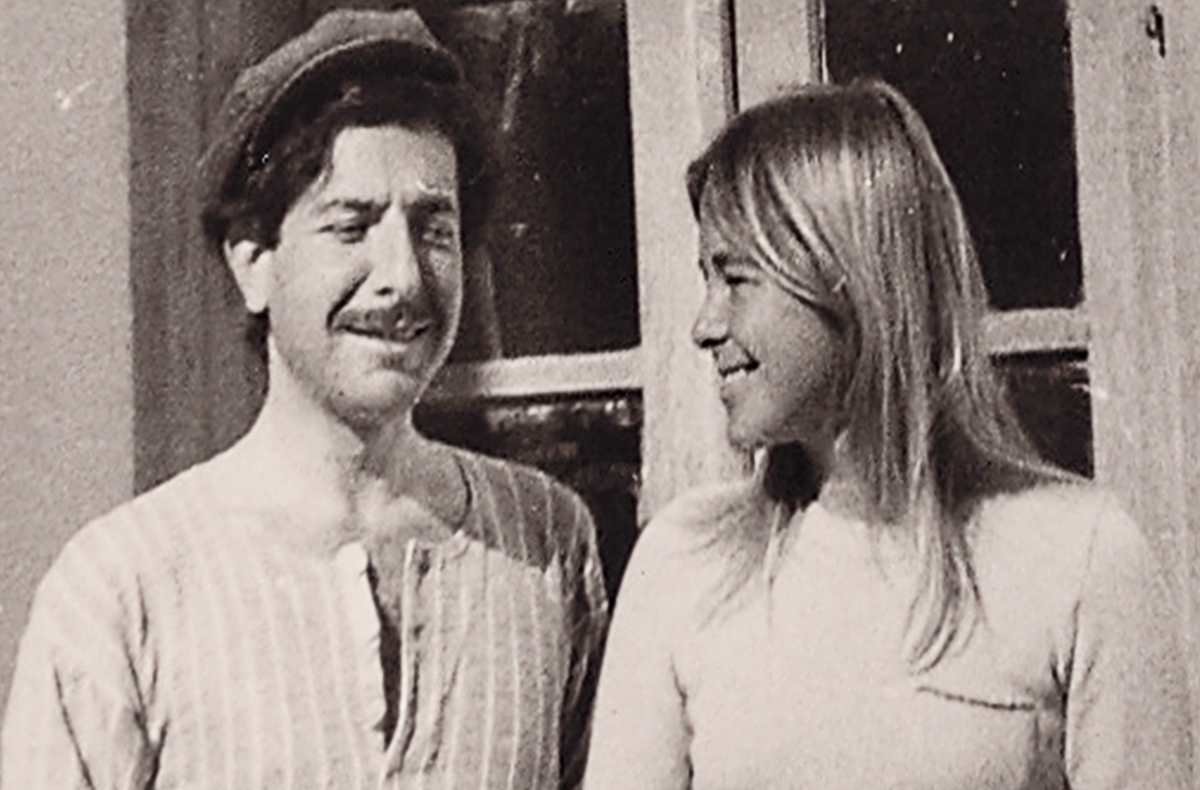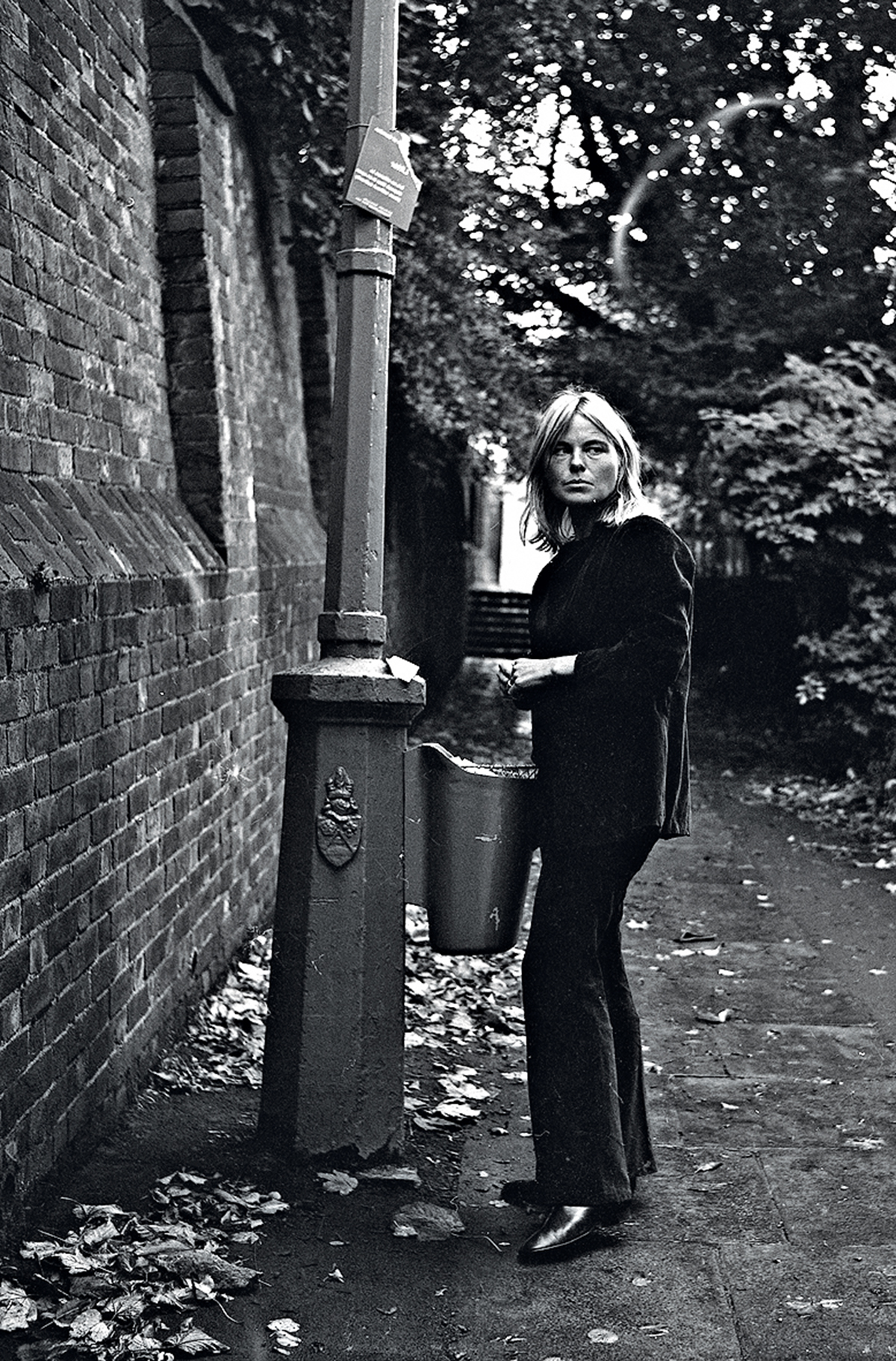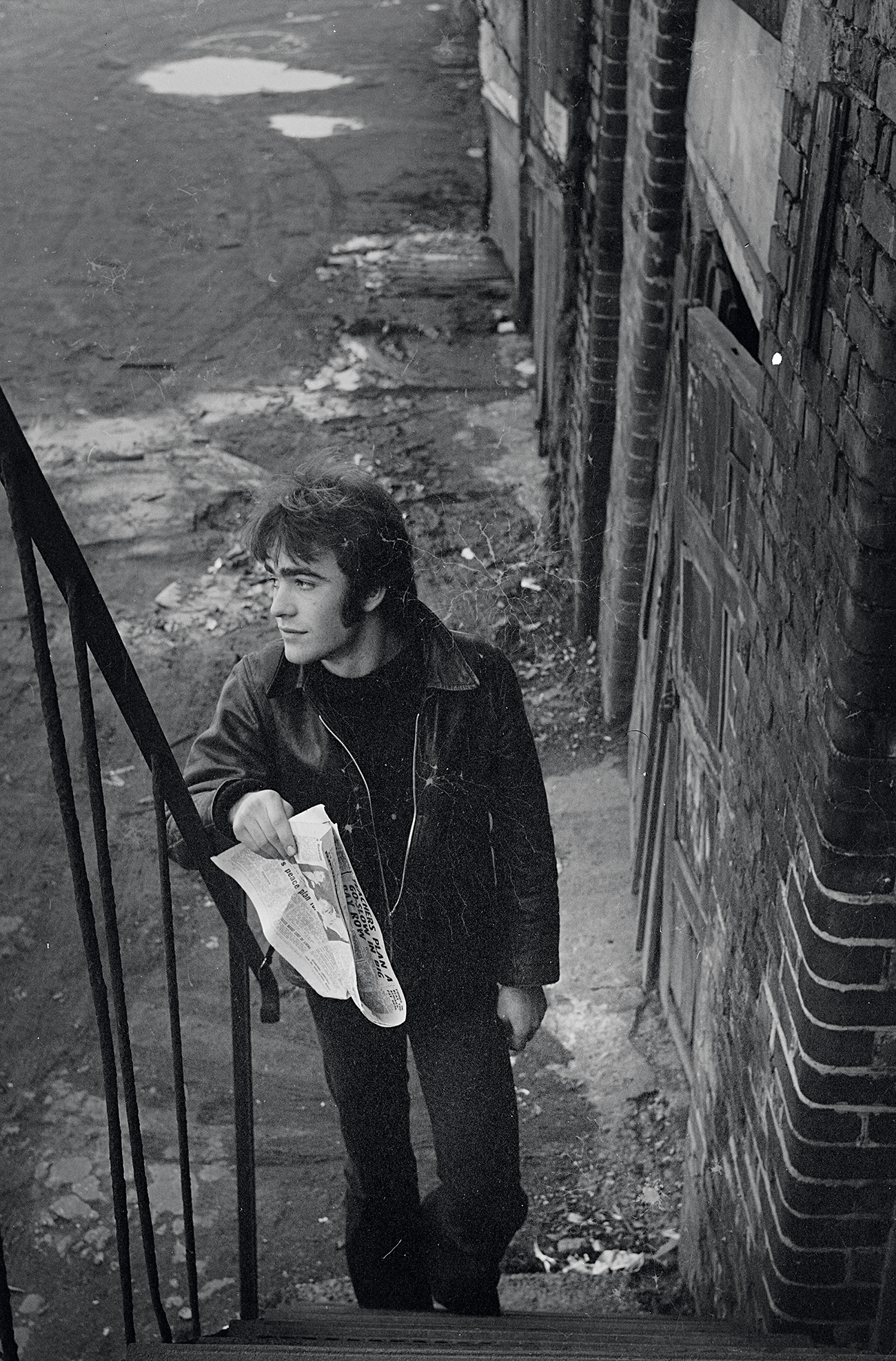Marianne and Leonard director: ‘They were devoted to each other’
Nick Broomfield's new film explores the lifelong love of singer-songwriter Leonard Cohen and his Norwegian muse, Marianne Ihlen, who inspired So Long, Marianne and Bird on the Wire

Just days before she died, Leonard Cohen sent an especially touching message to his ailing former lover and muse, Marianne Ihlen, the inspiration for classic songs such as So Long, Marianne and Bird on the Wire.
In it, he told his Norwegian love: “I think I will follow you very soon. Know that I am so close behind that if you stretch out your hand, I think you can reach mine.”
Three months later, his prophesy came true and Cohen also passed away, aged 82.
Get The Jewish News Daily Edition by email and never miss our top stories Free Sign Up
Their relationship is now explored in Marianne and Leonard: Words of Love, the latest documentary from Nick Broomfield, who bookends the film with Marianne’s death, and fills the space in between with archive photos, previously unseen footage of Marianne shot by the great D A Pennebaker, and new interviews.
He chronicles Cohen’s transition into songwriting, following his failure as a novelist, and the impact on Marianne and Axel, her son from a disastrous marriage.

At the centre of it all is Hydra, the Greek island where expats built a bohemian community, and the destination where Cohen and Ihlen first met, in 1960, and lived together.
Broomfield knows this world. He visited Hydra as a callow 20-year-old law student, a year after the release of Cohen’s 1967 debut album, Songs of Leonard Cohen, and himself became one of Marianne’s lovers. Encouraged by her, Broomfield turned to filmmaking.
When the young traveller had arrived on Hydra, Cohen was in New York and unknown to him.
“I was pretty naïve,” Broomfield recalls. “His album had come out, but I didn’t hear it until I went to the island. I could sense that he was held in a kind of reverence and people were in awe about him – I felt very out of my depth, and pretty inadequate.”
He found Hydra “spellbinding”, but it was a difficult place, “because there’s no rules, and no structure.”
For expats “looking for an alternative way of living, or experimenting with drugs and relationships, it was ruthless.”

While some people went too far and self-destructed, Cohen thrived. “He was a very disciplined, three-page-a-day kind of guy, and kept to that pretty much throughout his life,” says Broomfield.
When Cohen was growing up, his father had wanted to send him to Kingston Military Academy, “which I think Leonard was entirely in favour of.”
However, after his father died, his mother wanted a different life for him.
“He always had a great admiration for the military though, and was sorely tempted to join the Israeli army, later on. He wasn’t a straightforward 60s poet.”
Another formative influence was his grandfather, a scholar of the Talmud, who encouraged Cohen to read religious texts.
Shared Jewish roots later bonded Cohen and a Romanian-born Canadian poet, Irving Layton, whose widow appears in the documentary, but Marianne wasn’t Jewish, and it was important to Cohen that the mother of his children be so.
During a visit to Broomfield, she asked him to drive her to Bath for an abortion.
“I think Leonard was very traditional. I know from talking to other people who knew them that there were a number of other abortions. When Marianne talks in the film about not having children with him, you can tell it’s a deep regret.”
Broomfield had the “strange privilege” of being someone whom she knew she could trust and wouldn’t judge her.
Nonetheless, it was “a disturbing experience,” and he admits that while he was sad when Marianne left to go to New York, “I did feel a certain relief in that I didn’t feel completely overwhelmed anymore.
“It was quite hard being at university and also dealing with a lot of emotion that was beyond my abilities.”
It would be easy to see Marianne as the muse who got walked over. There are periods of loneliness and longing in the film, but it’s the 60s and she and Cohen had an open relationship.
Cohen seems to have been able to comparmentalise his feelings and life more.
In New York, he resided at the notorious Chelsea Hotel – where he had a fling with Janis Joplin, famously immortalised in the song Chelsea Hotel No 2 – while Marianne stayed in an apartment on Clinton Street.

“He felt that she didn’t belong in New York, that she wouldn’t really understand the whole Andy Warhol scene that was happening at Chelsea Hotel. I guess he was very keen on Nico and all the other women that were around, too. It was a fast and furious time.”
Broomfield interviewed Marianne’s roommate, but decided against including her in the film. “She didn’t like Leonard at all. But I felt this was a story about enduring love, and a complicated relationship, and I didn’t really want to do a blame portrait.”
He claims Marianne never harboured any bitterness towards Cohen, and only felt hurt that he hadn’t bought her a new house on Hydra to replace the one she’d sold when he was struggling.
“They were devoted, one way or another, to each other. Marianne learnt so much from Leonard, and he obviously benefited so much from her pushing him into what he became,” Broomfield insists.
“I think she saw their relationship as something that was hugely enriching and positive in her life.”
Marianne and Leonard: Words of Love (12A) is in cinemas now

Thank you for helping to make Jewish News the leading source of news and opinion for the UK Jewish community. Today we're asking for your invaluable help to continue putting our community first in everything we do.
For as little as £5 a month you can help sustain the vital work we do in celebrating and standing up for Jewish life in Britain.
Jewish News holds our community together and keeps us connected. Like a synagogue, it’s where people turn to feel part of something bigger. It also proudly shows the rest of Britain the vibrancy and rich culture of modern Jewish life.
You can make a quick and easy one-off or monthly contribution of £5, £10, £20 or any other sum you’re comfortable with.
100% of your donation will help us continue celebrating our community, in all its dynamic diversity...
Engaging
Being a community platform means so much more than producing a newspaper and website. One of our proudest roles is media partnering with our invaluable charities to amplify the outstanding work they do to help us all.
Celebrating
There’s no shortage of oys in the world but Jewish News takes every opportunity to celebrate the joys too, through projects like Night of Heroes, 40 Under 40 and other compelling countdowns that make the community kvell with pride.
Pioneering
In the first collaboration between media outlets from different faiths, Jewish News worked with British Muslim TV and Church Times to produce a list of young activists leading the way on interfaith understanding.
Campaigning
Royal Mail issued a stamp honouring Holocaust hero Sir Nicholas Winton after a Jewish News campaign attracted more than 100,000 backers. Jewish Newsalso produces special editions of the paper highlighting pressing issues including mental health and Holocaust remembrance.
Easy access
In an age when news is readily accessible, Jewish News provides high-quality content free online and offline, removing any financial barriers to connecting people.
Voice of our community to wider society
The Jewish News team regularly appears on TV, radio and on the pages of the national press to comment on stories about the Jewish community. Easy access to the paper on the streets of London also means Jewish News provides an invaluable window into the community for the country at large.
We hope you agree all this is worth preserving.
-
By Laurent Vaughan - Senior Associate (Bishop & Sewell Solicitors)
-
By Laurent Vaughan - Senior Associate (Bishop & Sewell Solicitors)
-
By Laurent Vaughan - Senior Associate (Bishop & Sewell Solicitors)
-
By Laurent Vaughan - Senior Associate (Bishop & Sewell Solicitors)





















